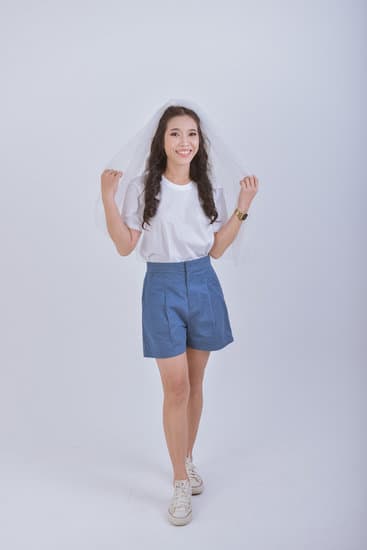Do you wear white to a wedding? The significance of the color white in wedding attire has evolved over time, and understanding its history can help guests make appropriate fashion choices. In this article, we’ll explore the traditional wedding dress code, etiquette tips for guests facing the white dress dilemma, and alternative stylish outfit options. We’ll also discuss the importance of respectful communication with the bride and groom regarding attire choices.
The tradition of wearing white to weddings has a rich history that dates back centuries. What was once considered a symbol of purity and innocence has transformed into a fashion statement for modern brides. However, the question remains: is it appropriate for guests to wear white to a wedding? This article aims to provide insight into the cultural significance of white wedding attire and offer guidance on navigating this often-controversial topic.
Throughout this fashion guide for wedding guests, we will delve into the do’s and don’ts of wedding attire and examine different cultural perspectives on the controversy of wearing white. By understanding the history behind this tradition, guests can make informed decisions when selecting their outfits for upcoming weddings. It’s essential to approach this subject with respect and consideration for the bride and groom’s wishes while also expressing personal style sensibilities.
The Traditional Wedding Dress Code
Avoid Wearing White
One of the cardinal rules of wedding attire is to avoid wearing white. This color has long been associated with the bride, as it symbolizes purity and innocence.
Therefore, wearing white to a wedding can be seen as disrespectful and even attention-seeking, as it may take away from the bride’s spotlight on her special day. It’s best to steer clear of any shade that closely resembles white, such as ivory or cream, in order to ensure that you are not inadvertently causing any offense.
Say No to Anything Too Revealing or Casual
When choosing an outfit for a wedding, it’s also important to consider the level of formality for the event. Avoid anything too revealing or casual, such as jeans, shorts, or tank tops. This is a time for guests to dress up and show their respect for the couple and the occasion. Opt for more formal attire like cocktail dresses or suits instead. Remember that it’s better to be slightly overdressed than underdressed at a wedding.
Steer Clear of Loud Statement Pieces
While expressing your personal style through accessories is always fun, it’s best not to go overboard when attending a wedding. Avoid wearing loud statement pieces that could potentially overshadow the main focus of the day – the couple getting married. This includes overly flashy jewelry, extremely bold patterns, or anything that may draw too much attention away from the bride and groom.
Following these guidelines will ensure that your outfit choice demonstrates your understanding of and respect for traditional wedding dress codes. By adhering to these simple do’s and don’ts, you can enjoy celebrating this special occasion with confidence while honoring the significance of the event for all involved parties.
Do’s and Don’ts of Wedding Attire
When it comes to attending a wedding, it’s important to consider the do’s and don’ts of wedding attire to ensure that you are dressed appropriately for the occasion. One of the most important rules to keep in mind is avoiding wearing white to a wedding, as this color is traditionally reserved for the bride.
It is considered disrespectful and inappropriate for guests to wear white, as it can be seen as an attempt to upstage the bride on her special day.
Do’s of Wedding Attire
When choosing your outfit for a wedding, consider wearing pastel or muted colors that are elegant and sophisticated. Opt for dresses or suits that are formal and appropriate for the venue and time of day. It’s also a good idea to adhere to any specific dress code mentioned on the invitation, such as black tie or cocktail attire. When in doubt, it’s better to be slightly overdressed than underdressed for a wedding.
Don’ts of Wedding Attire
In addition to avoiding white, there are other colors and styles that should be avoided when selecting your outfit for a wedding. Steer clear of anything too revealing or casual, such as denim or shorts. Avoid overly flashy or attention-grabbing ensembles that could detract from the focus on the couple getting married. As a guest, it’s important to show respect for the significance of the event by dressing tastefully and thoughtfully.
Remembering these do’s and don’ts of wedding attire will help ensure that you are dressed appropriately as a guest at any wedding. By being mindful of traditional etiquette and considering the wishes of the bride and groom, you can show respect for their special day while still expressing your personal style through your outfit choices.
The Controversy of White
The controversy surrounding wearing white to a wedding goes beyond just traditional etiquette. In different cultures around the world, the significance and symbolism of the color white vary widely. For example, in Western cultures, white is often associated with purity and innocence, which is why it has historically been reserved for the bride. However, in some Eastern cultures, such as China and India, white is the color of mourning and funerals.
Understanding these cultural differences is essential for guests attending multicultural weddings or those with spouses from different cultural backgrounds. It’s important to be respectful and considerate of these varying perspectives when choosing attire for a wedding celebration. This means being mindful not only of the color you wear but also of any other cultural customs or traditions that may impact your outfit choices.
In some cases, couples may choose to incorporate multiple cultural elements into their wedding ceremony and reception. As a guest, it’s important to communicate openly with the bride and groom about any specific dress code guidelines they may have based on their cultural traditions.
By doing so, you can ensure that you are respecting their wishes and honoring their heritage while still feeling comfortable in your outfit choice. Ultimately, embracing diverse cultural perspectives on wedding attire can lead to a richer and more meaningful experience for everyone involved.
| Cultural Perspective | Significance of White |
|---|---|
| Western Culture | White symbolizes purity and innocence |
| Eastern Culture | White is the color of mourning and funerals |
Etiquette Tips for Guests
When it comes to attending a wedding, guests often question whether it is appropriate to wear white. The traditional etiquette rule dictates that wearing white or any outfit that could potentially overshadow the bride is a major faux pas. The general consensus is that unless specified by the couple, it’s best to avoid wearing white to a wedding.
However, there are exceptions to this rule. For example, in some cultures and countries such as China and India, white attire represents mourning and is considered inappropriate for joyful occasions like weddings. On the other hand, in Western cultures, wearing white to a wedding is not only frowned upon but can also be seen as disrespectful.
As a guest, it’s essential to respect the couple’s wishes and cultural traditions when choosing an outfit for their big day. If you’re still unsure about what to wear or have doubts about whether your chosen attire crosses any boundaries, don’t hesitate to reach out and ask for clarification from the bride or groom. Open communication helps ensure that everyone feels comfortable and respected on such an important occasion.
| Country/Culture | White Attire Tradition |
|---|---|
| China | Represents mourning and considered inappropriate for weddings |
| India | Also represents mourning and not suitable for joyous events |
| Western Cultures | Wearing white is frowned upon and seen as disrespectful |
Alternatives to White
When attending a wedding, it’s important to adhere to the traditional dress code and show respect for the couple’s special day. If you’ve decided not to wear white to the wedding, there are plenty of stylish outfit options that are suitable for the occasion. Here are some alternatives to consider:
1. Pastel colors: Soft, romantic hues like blush pink, baby blue, or lavender are perfect for a wedding guest outfit. These colors exude elegance and add a feminine touch without overshadowing the bride.
2. Floral prints: A floral dress or jumpsuit can be a great choice for a spring or summer wedding. Opt for small, delicate floral prints in light and airy fabrics for a whimsical and festive look.
3. Jewel tones: Deep, rich shades like emerald green, royal blue, or plum make for sophisticated and polished wedding attire. These colors are especially stunning for evening weddings and formal affairs.
Remember to consider the venue, time of day, and theme of the wedding when choosing your outfit. Whether you opt for a classic cocktail dress, a chic pantsuit, or a trendy midi skirt with a blouse, the key is to strike the right balance between style and respect for the couple’s big day. By choosing an appropriate alternative to white, you can confidently celebrate with the bride and groom while looking fabulous.
How to Properly Communicate With the Bride and Groom About Attire
When attending a wedding, it’s important to communicate with the bride and groom about your attire to ensure that you are following their dress code and not making any fashion faux pas. Here are some tips on how to properly communicate with the bride and groom about attire:
1. Ask for Clarity: If you’re unsure about the dress code, don’t be afraid to reach out and ask for clarification. Send a polite message or call them to inquire about what type of attire is appropriate for their wedding.
2. Respect Their Wishes: Once you have received guidance on the dress code, make sure to respect their wishes. If they request that guests avoid wearing white, then it’s important to adhere to this request out of respect for the couple.
3. Offer Options: If the bride and groom provide flexibility in terms of attire, consider offering them a few outfit options that you have in mind and ask for their opinion on what would be most suitable.
Communicating openly with the couple about your attire can help ensure that you are dressed appropriately for their special day. It also shows respect for their wishes and helps avoid any potential wardrobe conflicts. Remember, at the end of the day, it’s their celebration and honoring their requests is key in showing your support and consideration as a guest.
Final Thoughts
In conclusion, the decision of whether or not to wear white to a wedding is ultimately a personal choice, but it should always be made with respect and consideration for the couple’s special day. As we have explored the history of wearing white to weddings and the traditional dress code for guests, it is clear that certain etiquette tips should be followed to avoid any potential controversy or discomfort for the bride and groom.
The controversy surrounding wearing white to a wedding is not just limited to Western cultures, as we have seen through exploring different cultural perspectives. It is important for guests to be mindful of the customs and traditions of the couple’s background when choosing their wedding attire. Understanding the significance of certain colors in different cultures can help avoid any unintentional disrespect.
Ultimately, whether it’s deciding on an outfit alternative to white or properly communicating with the bride and groom about attire, the key takeaway is that respect and consideration should guide our choices as wedding guests. By following proper etiquette, understanding cultural perspectives, and communicating openly with the couple, guests can ensure that they are honoring the significance of the occasion while still expressing their personal style.
So when next you receive a wedding invitation, ask yourself: do you wear white to a wedding with admiration and reflection?
Frequently Asked Questions
Is It Appropriate to Wear White to a Wedding?
It is generally considered inappropriate to wear white to a wedding as it may overshadow the bride, who traditionally wears white. White is often seen as a color reserved for the bride, so it’s best to avoid wearing it as a guest out of respect for her special role on that day.
Should Wedding Guests Not Wear White?
Wedding guests should typically avoid wearing white in order to avoid any potential confusion or unintentional upstaging of the bride. There are plenty of other colors and outfits to choose from that won’t raise any concerns about clashing with the bridal attire.
What Should a Female Guest Wear to a Wedding?
Female guests can opt for semi-formal or formal attire when attending a wedding. This could include dresses, skirts, dressy pants paired with blouses or tops, along with appropriate accessories and footwear. It’s also important to consider the wedding venue and theme when choosing an outfit, as well as ensuring it is respectful and appropriate for the occasion.

I have been involved in marriages for over 20 years helping couples and singles understand more about them.





